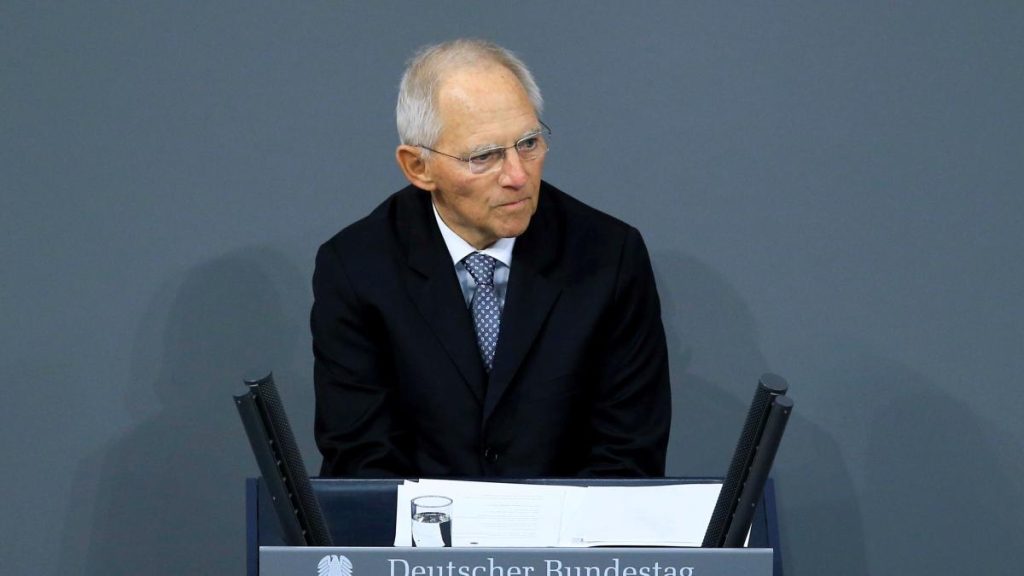Wolfgang Schäuble, the late CDU politician, revealed in his posthumously published memoirs that he had been aware of his slowly developing cancer since 2006. In 2005, shortly after becoming Federal Minister of the Interior, doctors diagnosed Schäuble with prostate cancer. He confided in Chancellor Angela Merkel about his illness. Despite the seriousness of the diagnosis, Schäuble chose to keep his condition private and only informed Merkel before undergoing surgery in early 2006. The surgery was mostly successful, with the cancer developing slowly over the next decade. Schäuble also made the decision to quit smoking after the operation.
Contrary to some of his colleagues, Schäuble did not publicly disclose his illness, and Merkel never brought it up again. The CDU politician emphasized that he had quit smoking after nearly fifty years without any relapses. Schäuble passed away last year at the age of 81 after a long battle with cancer. In another excerpt from his memoirs, Schäuble criticized Merkel for obstructing the expansion of the Eurozone into a true economic union during the sovereign debt crisis of 2010 due to fears of Euroskeptics within her party. He had hoped to use the opportunity to create a currency union with a common financial, economic, and social policy during the initial phase of the crisis but was unable to do so.
According to Schäuble, Merkel’s success in forming a coalition government with the FDP made her hesitant to engage in potential conflicts over European integration. He believed that a currency union with a common fund similar to the IMF was feasible at the time, both at the European and national levels. However, Merkel’s prioritization of strict adherence to existing treaties limited the possibilities for action. Their different approaches to handling the Eurocrisis highlighted a divergence in their understanding of political leadership. Schäuble was actively working towards a first aid package, while Merkel was leaning towards allowing the ECB to purchase government bonds to lower interest rate disparities among countries.
Schäuble warned Merkel against overburdening the ECB with crisis response tasks. Merkel’s response, according to Schäuble, reflected her leadership style of avoiding confrontations by delegating responsibility to the ECB. This interaction exemplified the differing approaches of the two political leaders. Schäuble believed that Merkel’s cautiousness during the crisis prevented significant progress towards a more integrated European economic and financial union. The excerpts from Schäuble’s memoir offer insights into his personal experiences with health challenges and political strategies during a critical period for European integration.















